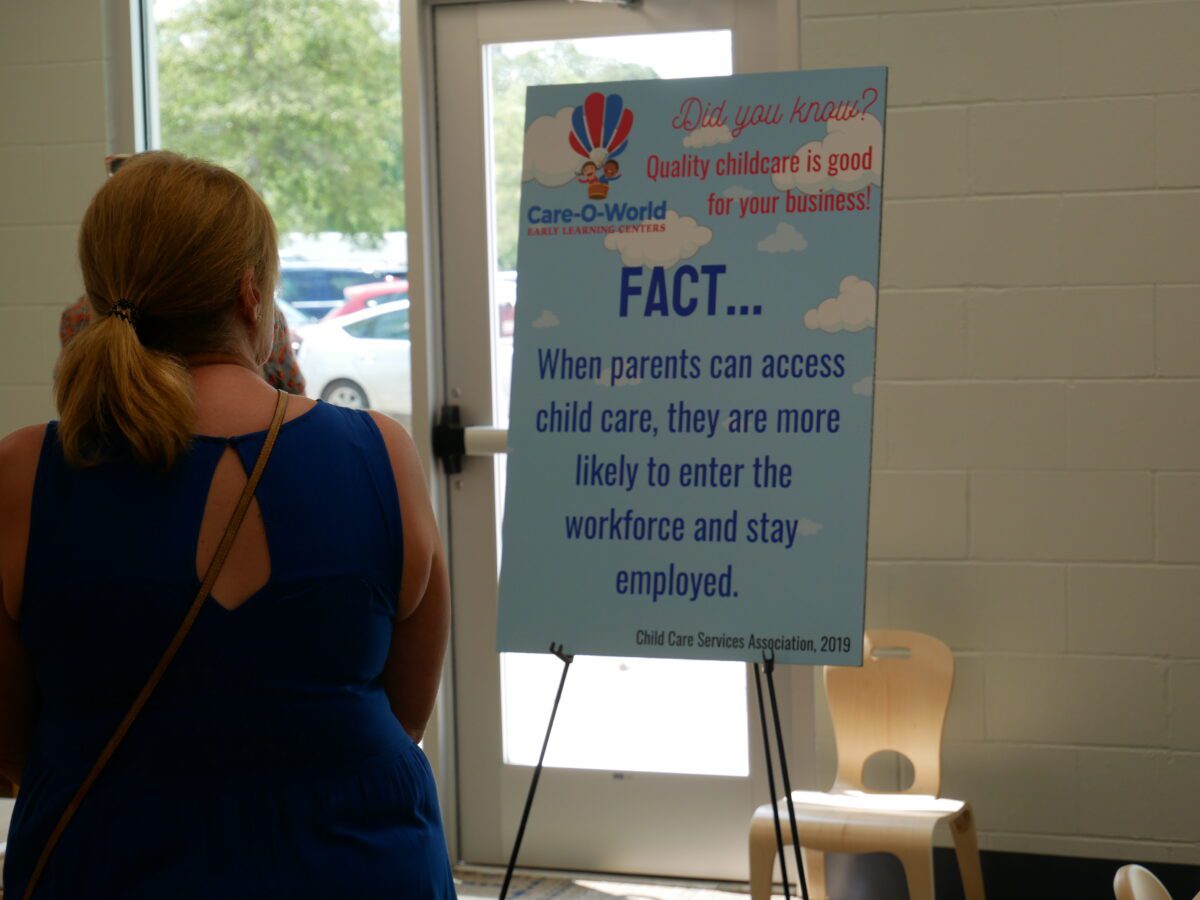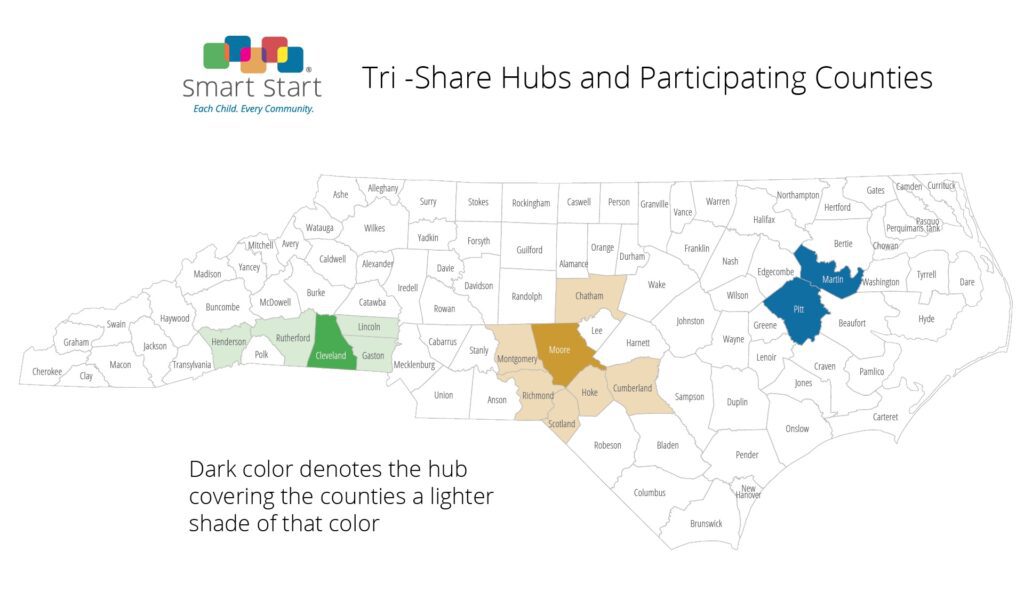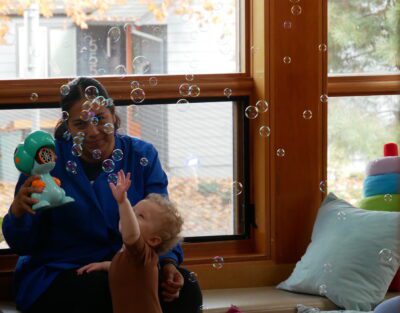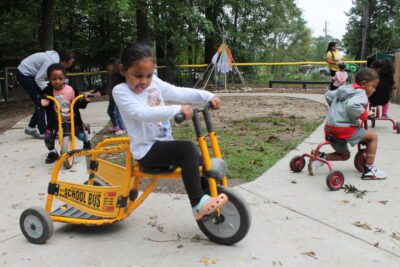
Editor’s Note: This article was updated on Feb. 5, 2024, with information on the timeline of the pilot’s launch.
With calls from parents, businesses, and advocates to ease the burden of unaffordable child care last year, North Carolina legislators created a two-year pilot called Tri-Share in the budget, based on a model in Michigan, that splits the cost of child care between participating businesses, eligible employees, and the state government.
The North Carolina Partnership for Children (NCPC) and the Division of Child Development and Early Education announced Thursday that they had chosen the three local Smart Start partnerships that will be facilitator hubs in the pilot. The first families will be served in the following communities by July, NCPC spokesperson Jessica Carter said:
- The Cleveland County Partnership for Children (serving Cleveland, Rutherford, Henderson, Lincoln, and Gaston counties)
- The Martin-Pitt Partnership for Children (serving Martin and Pitt counties)
- Partners for Children and Families of Moore County (serving Moore, Chatham, Cumberland, Hoke, Montgomery, Richmond, and Scotland counties)

Eligible families must have an income between 185% and 300% of the federal poverty line, must work for a participating business, and must be ineligible for other subsidized child care.
The goal is to make child care more affordable for families, help businesses recruit and retain employees, and stabilize child care across the state. Providers face a financial cliff at the end of June that experts predict could lead to the eventual closure of 32% of the state’s programs unless they get additional funding.
The state budget instructed NCPC and DCDEE to choose the three participating regions for the pilot, with the requirement that one of the hubs be in a county considered Tier 1, or among the most economically distressed, by the NC Department of Commerce. Both Martin and Pitt counties, as well as Rutherford, Richmond, Scotland, Hoke, and Cumberland, are in Tier 1.
These hubs were chosen, in a request-for-proposal process, because of “their strong ties to their community, particularly regarding workforce relations; leadership within early care and education, and their strong relationships with other Smart Start Local Partnerships,” an NCPC news release said.
“Tri-Share decreases the burden on families to pay for child care and increases access to needed care and education,” Angela Lewis, NCPC’s early care and education manager, said in the release. “By using this pilot as an example that we can hopefully scale up in the future, we can create further positive and lasting changes for children and families and enhance employer recruitment and retention efforts across North Carolina.”
The hubs will do the on-the-ground work of launching the pilot, such as recruiting businesses and child care programs to participate and overseeing funds between parents, businesses, and the state. NCPC will help with administrative support, the release said. NCPC is also working to select a third-party administrator in early February to provide services like centralizing and automating employee enrollment and payments, and helping with reporting requirements, Carter said.
The budget allocated $900,000 for this fiscal year and the next to split among the three hubs. The news release said additional counties can join the three regions as the pilot grows.
In an interview with EdNC last month, NCPC President Amy Cubbage said this pilot makes sense for the state since North Carolina has a history of successful public-private partnerships in the early childhood space, including Smart Start.
“While Tri-Share is small, I do think that it represents and symbolizes some commitment that is the DNA of early childhood in North Carolina,” Cubbage said. She said she is “very hopeful” the pilot can be “morphed into ongoing funding.”
Interested businesses should contact their local Smart Start partnership, according to the release.
In September, EdNC’s early childhood team visited Michigan, where the model is spreading statewide, as part of its national tour of five states leading the way in early childhood policy and investment. Michigan’s statewide leaders, as well as individuals facilitating the program, said that while implementation is complex, the program is a retention tool for businesses and a relief for parents. It won’t completely solve child care supply issues or low teacher wages, they added.




